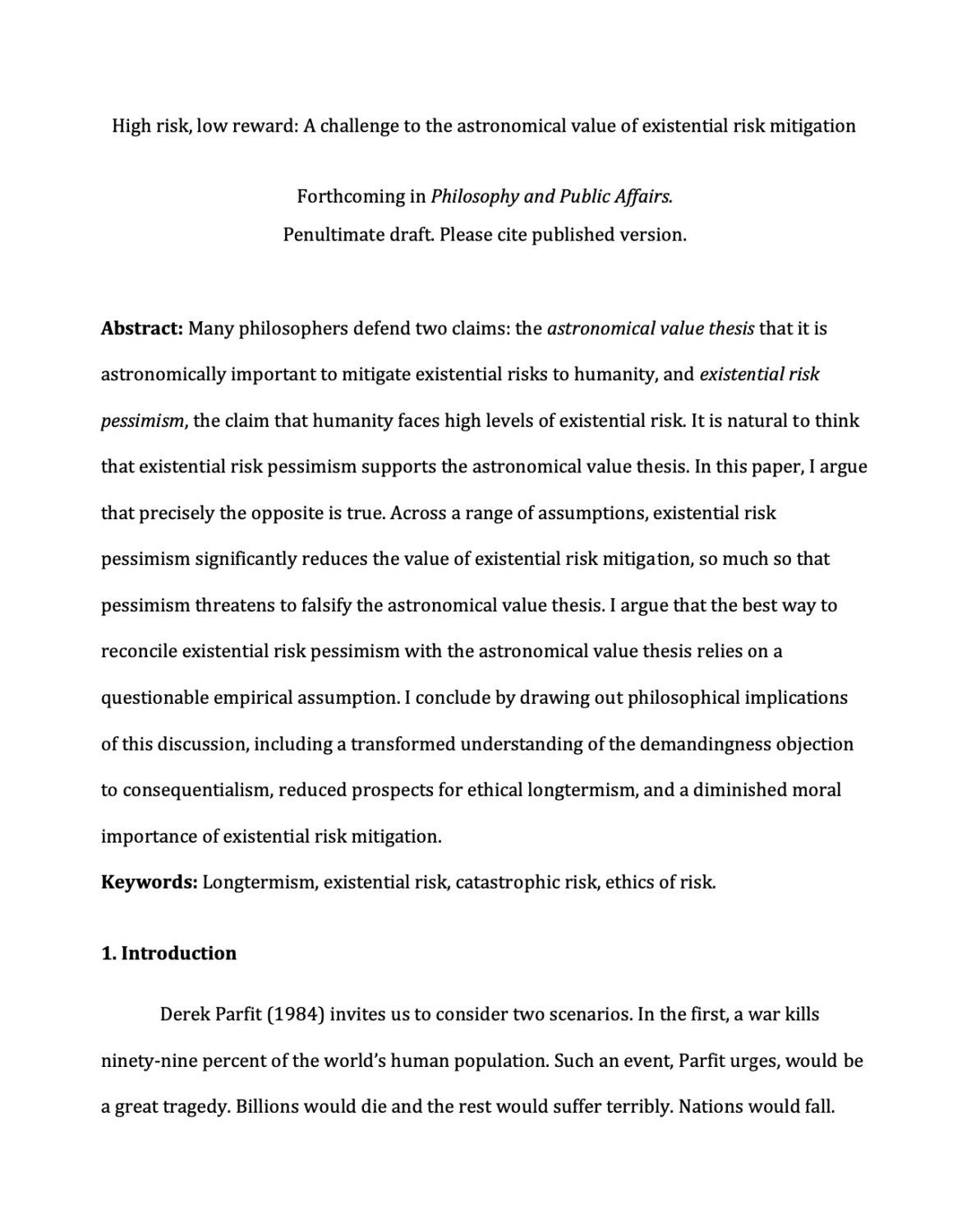High risk, low reward: A challenge to the astronomical value of existential risk mitigation
David Thorstad (Global Priorities Institute, University of Oxford)
GPI Working Paper No. 6-2023, published in Philosophy and Public Affairs
Many philosophers defend two claims: the astronomical value thesis that it is astronomically important to mitigate existential risks to humanity, and existential risk pessimism, the claim that humanity faces high levels of existential risk. It is natural to think that existential risk pessimism supports the astronomical value thesis. In this paper, I argue that precisely the opposite is true. Across a range of assumptions, existential risk pessimism significantly reduces the value of existential risk mitigation, so much so that pessimism threatens to falsify the astronomical value thesis. I argue that the best way to reconcile existential risk pessimism with the astronomical value thesis relies on a questionable empirical assumption. I conclude by drawing out philosophical implications of this discussion, including a transformed understanding of the demandingness objection to consequentialism, reduced prospects for ethical longtermism, and a diminished moral importance of existential risk mitigation.
Other working papers
Welfare and felt duration – Andreas Mogensen (Global Priorities Institute, University of Oxford)
How should we understand the duration of a pleasant or unpleasant sensation, insofar as its duration modulates how good or bad the experience is overall? Given that we seem able to distinguish between subjective and objective duration and that how well or badly someone’s life goes is naturally thought of as something to be assessed from her own perspective, it seems intuitive that it is subjective duration that modulates how good or bad an experience is from the perspective of an individual’s welfare. …
Three mistakes in the moral mathematics of existential risk – David Thorstad (Global Priorities Institute, University of Oxford)
Longtermists have recently argued that it is overwhelmingly important to do what we can to mitigate existential risks to humanity. I consider three mistakes that are often made in calculating the value of existential risk mitigation: focusing on cumulative risk rather than period risk; ignoring background risk; and neglecting population dynamics. I show how correcting these mistakes pushes the value of existential risk mitigation substantially below leading estimates, potentially low enough to…
How important is the end of humanity? Lay people prioritize extinction prevention but not above all other societal issues. – Matthew Coleman (Northeastern University), Lucius Caviola (Global Priorities Institute, University of Oxford) et al.
Human extinction would mean the deaths of eight billion people and the end of humanity’s achievements, culture, and future potential. On several ethical views, extinction would be a terrible outcome. How do people think about human extinction? And how much do they prioritize preventing extinction over other societal issues? Across six empirical studies (N = 2,541; U.S. and China) we find that people consider extinction prevention a global priority and deserving of greatly increased societal resources. …

